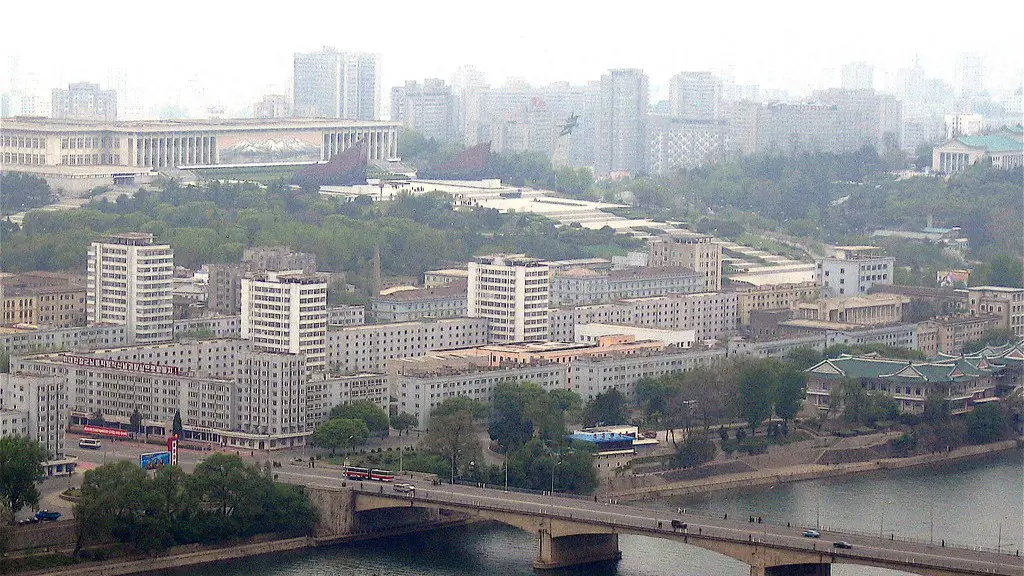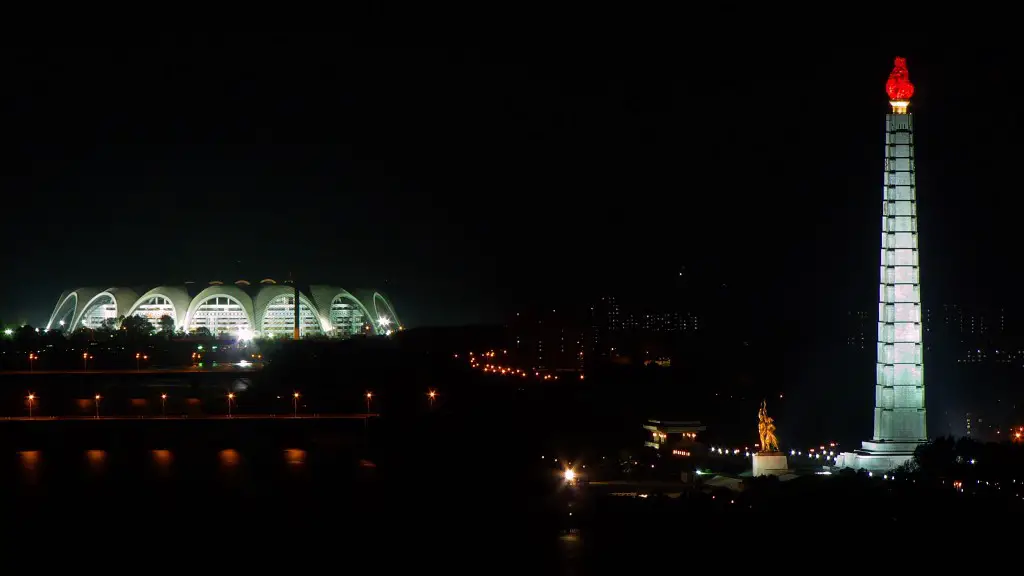Background Information
The United States and North Korea have had a volatile relationship since the end of World War II. The two countries were on opposing sides during the Korean War, and tensions have persisted since then. In recent years, the US has issued several sanctions against North Korea due to its continued nuclear weapons development programs.
The US has also deployed its military forces in the region, including in South Korea, as a show of force against North Korea. In recent months, the tensions between the two countries have escalated over North Korea’s nuclear weapons programs and its continued development of long-range ballistic missiles.
Relevant Data
The US has reportedly deployed missile defense systems in nearby countries, such as Japan and South Korea, as a response to North Korea’s military activities. Furthermore, the US has also threatened to impose further sanctions on North Korea if it continues to pursue its nuclear weapons programs.
Meanwhile, North Korea has also conducted several missile tests in recent months, including testing intercontinental ballistic missiles (ICBMs). These tests have been largely seen by the US as a direct challenge to its regional security and stability in the region.
Expert Perspectives
Experts have largely argued that the US is trying to contain North Korea’s nuclear ambitions through diplomatic means and economic sanctions. US President Donald Trump has also said that he is open to dialogue with North Korea, but only if it takes steps towards denuclearization.
However, some experts believe that the US is unlikely to launch a military strike against North Korea, given the potentially devastating consequences that this could have for both sides. Instead, the US is likely to continue pursuing a policy of containment through economic sanctions and diplomatic pressure.
Analysis and Insights
It is clear that the US and North Korea are locked in a stalemate, with the US looking to contain North Korea’s nuclear ambitions through sanctions and diplomatic pressure, while North Korea continues to pursue its nuclear weapons program. Given the potential consequences of a military strike, it is unlikely that the US will take this path, as it could be disastrous for both sides.
Instead, the US appears to be pursuing a strategy of containment and deterrence, with the deployment of missile defense systems and economic sanctions as the primary tools. In the meantime, it appears the tensions will continue, and the countries remain locked in a state of stalemate.
Political Implications
The tensions between the US and North Korea have created political ramifications for both countries, as well as the global community. In the US, the current administration has staked much of its political capital on its stance towards North Korea. The US has also tried to rally international support for its position and garner international condemnation of North Korea’s actions.
North Korea’s government has also used the standoff with the US to bolster its popularity domestically. The North Korean government has portrayed the US as a threat to its sovereignty, which has proven to be popular among its people.
Regional Implications
The tensions between the US and North Korea have also had a significant impact on the region, as the US has sought to rally its allies in the region against North Korea. The US has deployed additional forces in South Korea, and began deploying a missile defense system in the region, in response to North Korea’s missile tests.
These actions have been met with resistance from China, which has warned the US against further military deployments in the region. This has further escalated tensions in the region, and has increased the risk of a conflict.
International Relations Impact
The standoff between the US and North Korea has had a significant impact on international relations, particularly in the region. The US has sought to rally its allies in the region to support its stance, and to isolate North Korea. In response, China has sought to increase its political and economic ties with North Korea, as a counterbalance to US pressure.
Furthermore, the US has also enlisted the support of other countries in pressuring North Korea, such as the UN Security Council. This has further complicated international relations, and has raised the specter of a prolonged conflict in the region.
Implications for the Future
The US and North Korea stand at a critical juncture, with the potential for conflict looming. The US has indicated that it is open to dialogue with North Korea, but only if it takes steps towards denuclearization. However, North Korea appears determined to pursue its nuclear ambition, despite the international pressure and economic sanctions.
Ultimately, the future of the US-North Korean conflict will depend on the actions of both sides. If the US continues to pursue a policy of containment and diplomacy, then it is possible that the tensions can be managed without the need for further conflict. On the other hand, if North Korea continues to pursue its nuclear ambitions, then the risk of conflict will continue to rise.




